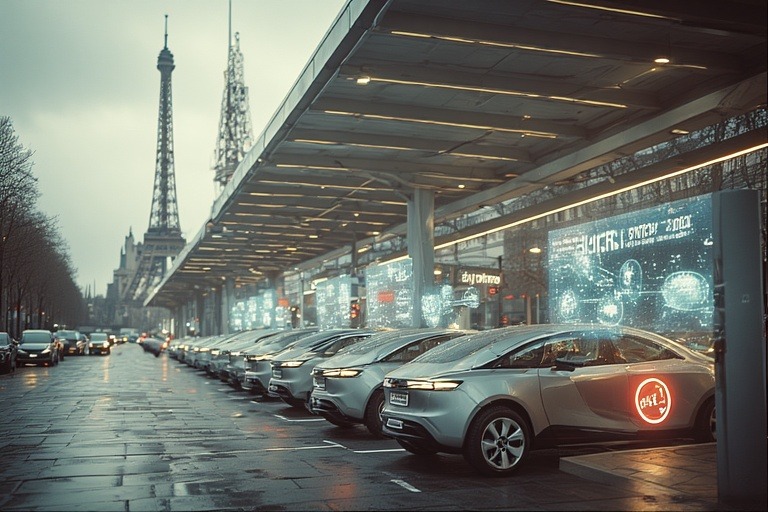The European Union (EU) is once again making headlines in the sustainability movement. Recent discussions suggest that by 2030, the EU could ban new internal combustion engine (ICE) rental cars, pushing rental fleets toward electric and hybrid vehicles. This policy isn’t just about cutting emissions—it’s about reshaping how Europeans and tourists experience mobility. But what does this mean for drivers, car rental companies, and the auto industry at large? Let’s explore a detailed review and comparison.
🌍 Why the EU is Targeting Rental Cars
Rental cars may not seem like the biggest polluters, but they play a significant role in urban traffic and tourism emissions.
-
High Turnover 🚖: Rental cars are frequently replaced, making them ideal for transitioning fleets to EVs.
-
Tourism Impact 🏖️: Millions of visitors rely on rentals, and shifting to EVs could drastically cut emissions.
-
Policy Alignment 📜: Fits within the EU’s broader Green Deal and 2050 carbon neutrality goals.
-
Urban Air Quality 🌫️: Cities plagued with smog could benefit from cleaner fleets.
👉 In short, this ban is less about individual car owners and more about scaling sustainability through fleets.
🔄 ICE Rental Cars vs. EV Rental Cars
A clear comparison shows why policymakers are leaning toward electrification:
-
Internal Combustion Engine (ICE):
-
Pros: Familiar, quick refueling, often cheaper upfront.
-
Cons: Polluting, reliant on fossil fuels, increasingly restricted in cities.
-
-
Electric Vehicles (EVs):
-
Pros: Zero emissions at point of use, lower running costs, supported by EU subsidies.
-
Cons: Higher upfront cost, range anxiety, charging infrastructure still uneven.
-
👉 Verdict: While ICE cars still win on convenience today, EVs are the future-proof option—especially with rapid charging networks expanding across Europe.
🏢 How Rental Companies Will Be Affected
For rental giants like Europcar, Hertz, and Sixt, the ban means a complete fleet overhaul.
-
Investment 💶: Companies will need billions to switch to electric fleets.
-
Maintenance 🔧: EVs require less maintenance, which could cut long-term costs.
-
User Education 📱: Tourists renting EVs may need quick tutorials on charging and range.
-
Partnerships ⚡: Rental companies will likely team up with charging providers for seamless service.
👉 While the short-term burden is heavy, the long-term payoff lies in reduced running costs and aligning with eco-conscious travelers.
✈️ Impact on Tourists & Local Drivers
Tourists and business travelers make up a large chunk of rental car users. For them, the transition could be both exciting and challenging.
-
Pros for Tourists: Cheaper “fuel” via charging, quieter rides, and lower emissions.
-
Challenges: Adapting to charging times, especially on rural road trips.
-
Urban Advantage: Cities like Paris, Amsterdam, and Berlin already restrict ICE vehicles—making EV rentals more practical.
👉 By 2030, renting an EV in Europe could feel as normal as renting a small hatchback today.
📈 Auto Industry & Market Trends in 2025
The EU’s potential rental ban aligns with broader auto industry shifts already underway:
-
EV Boom 🚀: Sales of EVs are projected to surpass 50% of new cars in Europe by 2030.
-
Battery Tech 🔋: Faster charging and longer ranges are reducing consumer hesitations.
-
Green Tourism 🌱: Travelers are increasingly choosing eco-friendly transport.
-
Policy Push 📑: Several EU countries already plan to ban new ICE car sales entirely by 2035.
👉 The rental sector is simply the testing ground for wider automotive transformation.
🔍 EU Rental Ban vs. Global Approaches
-
United States 🇺🇸: No national ban yet, but states like California are mandating EV sales by 2035. Rental companies are experimenting with EVs but not under legal pressure yet.
-
China 🇨🇳: Leading in EV adoption, with strong government incentives and massive EV fleets already in place.
-
EU 🇪🇺: Ahead in regulatory policy, aiming to force rapid adoption in both consumer and rental sectors.
👉 Comparison shows the EU is taking the most aggressive stance toward ICE phase-outs.
✅ Pros & Cons – Balanced Review
Pros:
-
Major reduction in emissions
-
Aligns with EU climate goals
-
Lower running costs for rental fleets
-
Tourists get greener travel options
Cons:
-
High upfront costs for rental companies
-
Charging infrastructure gaps could frustrate users
-
ICE lovers lose convenience and familiarity
-
Potentially higher rental prices during transition phase
🛒 Final Thoughts – Should Travelers & Companies Be Ready?
The potential EU ban on new ICE rental cars by 2030 isn’t just a rule—it’s a cultural shift in mobility.
-
For Companies: It’s an investment-heavy transition but ensures long-term sustainability.
-
For Travelers: EV rentals may take adjusting to, but they’ll bring cost savings and eco-friendly peace of mind.
👉 Overall, this move reflects the EU’s role as a global leader in green mobility, setting a standard others may follow.
🌍 Conclusion
The EU’s plan to ban new internal combustion engine rental cars starting 2030 is a bold step toward a sustainable mobility future. While challenges like cost and charging remain, the benefits of cleaner air, greener tourism, and modernized fleets far outweigh the drawbacks.
By 2030, when you rent a car in Europe, chances are it won’t roar with gasoline—it will glide silently with electric power. ⚡















